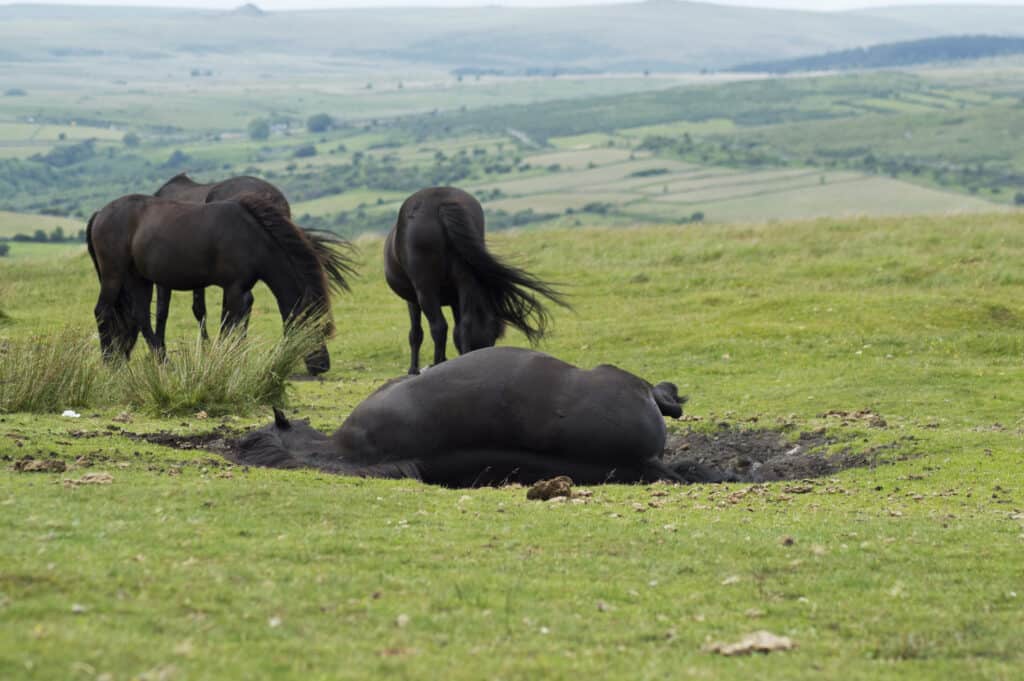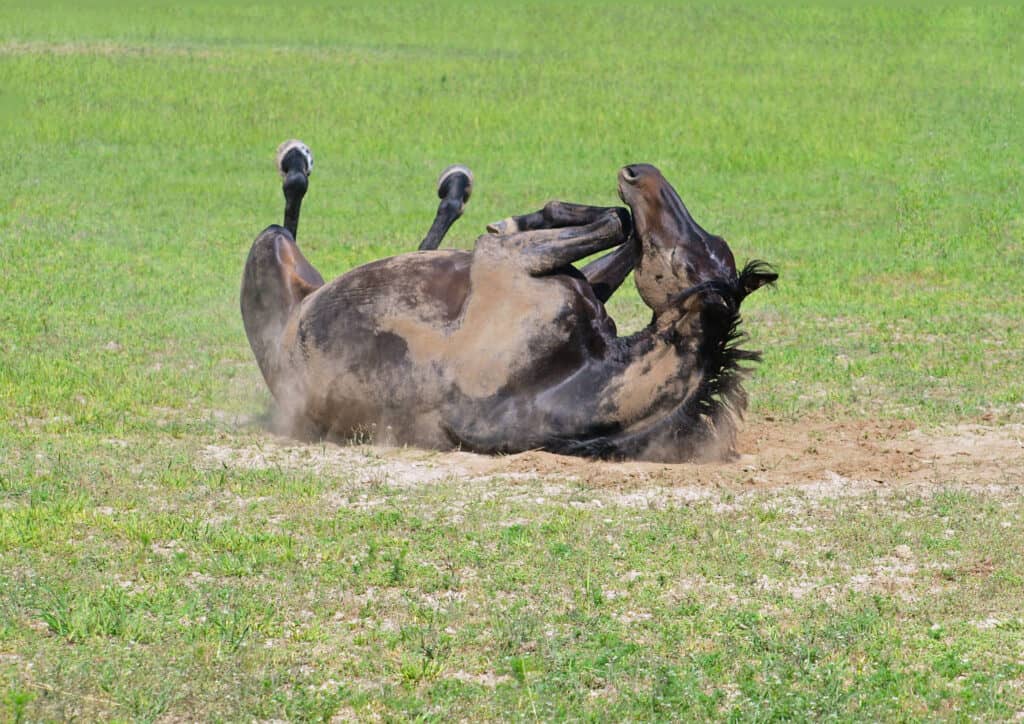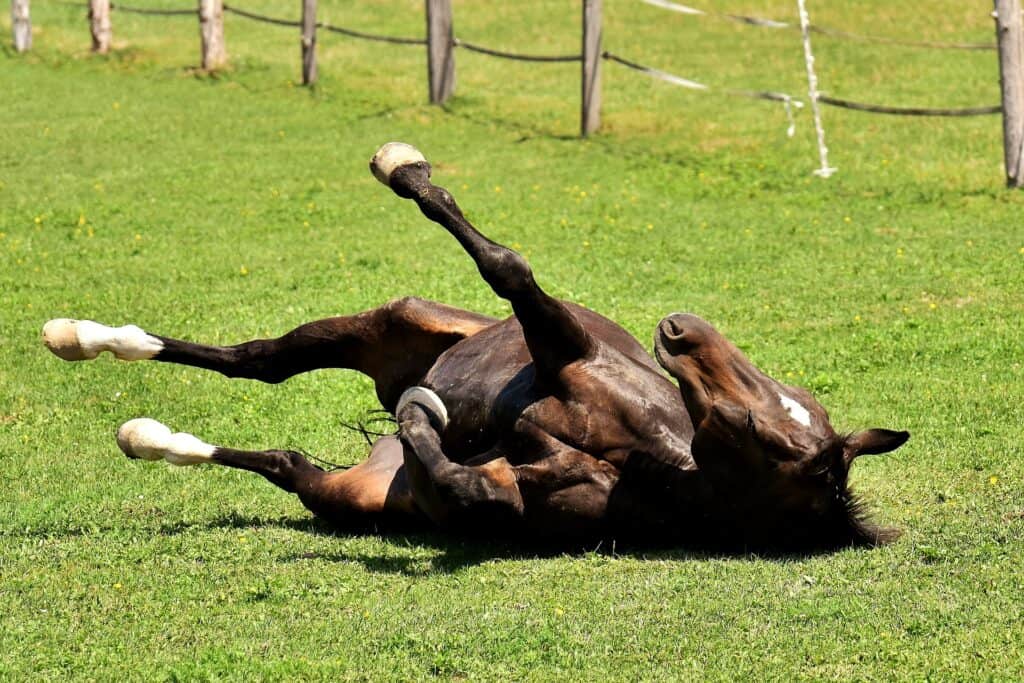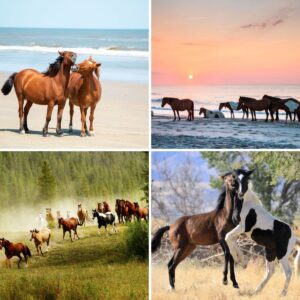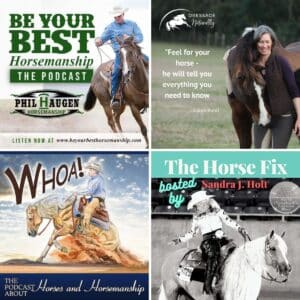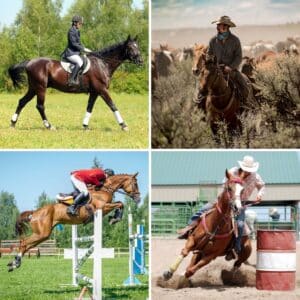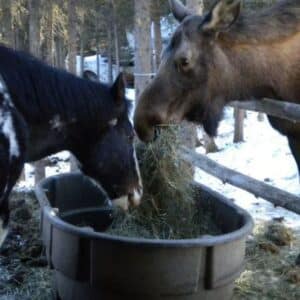There's a reason people describe horses as giant dogs. Not only are they loving and loyal towards humans, they can also be silly and playful like our canine pals. Never is their carefree spirit so evident as when they are rolling on the ground kicking their hooves up!
But why do horses enjoy rolling on the ground? Is it all about fun or are there practical reasons?
“As well as for enjoyment, a horse will roll to help with shedding their coat and to maintain their coat and body temperature too," UK Equine Behavioral Consultant, Sarah Clark tells Horse & Hound. "Mud and dust can act as a skin conditioner as well as a natural insect repellent. Any irritation caused by drying sweat can be relieved by rolling as the dust or mud has a cooling and drying effect."
It seems this cute, comical behavior actually serves many purposes. Let's break them down.
Here's why horses roll:
For pleasure.
Horses roll because it feels good! Wallowing in the dirt scratches an itch they otherwise could not reach. According to Clark, it is also an indication that they are happy and feel safe in their environment.
To remove parasites and pests.
Mud and dust act as natural insect repellants so it is in a horse's best interest to keep their coat dusty. This may be why they gallop right out to their favorite rolling spot right after a bath!
To relieve skin irritation.
Mud also acts as a natural skin conditioner and helps relieve the itch of drying sweat after vigorous activity.
To aid in shedding their coat.
Like brushing, rolling helps remove excess hair, especially in spring when horses shed their thick winter coat in favor of a sleek summer style.
To regulate their body temperature.
Rolling in the mud on a hot day can have a cooling effect. Horses that are blanketed in winter may also roll in an attempt to shed their blanket on an unseasonably warm day.
Because other horses are doing it.
Rolling seems to be a social behavior among herds of horses and many have a preferred spot designated for this activity. Much like contagious yawning, when one horse starts to roll, the others often follow suit.
To assert social dominance.
There is evidence that horses roll in order of rank with the most dominant animals going last. This ensures their scent marks last longer than the other members of the group.
Although it has not been proven, rolling as a territorial marking behavior has been observed in harem stallions and donkey jacks when in the presence of estrus mares.
Because they are in pain.
A horse suffering from colic may roll in order to relieve their belly pain. If a horse rolls several times throughout the day with episodes of pacing, pawing, or depressed behavior in between, it may be a sign of a medical problem.
If you are concerned your horse's rolling is a symptom of pain, seek prompt veterinary attention. Colic and digestive issues can be quite serious and early intervention is best.
Horse Courses by Elaine Heney
- Listening to the Horse - The Documentary by Elaine Heney & Grey Pony Films
- Shoulder In & Out Training for better balance, bend & topline development with your horse
- Over 110+ Polework Exercises & Challenges to Download
- Dancing at Liberty & Creating Connection with Your Horse (11 lessons) - Grey Pony Films
H/T to Horse&Hound UK & TheHorse.com

